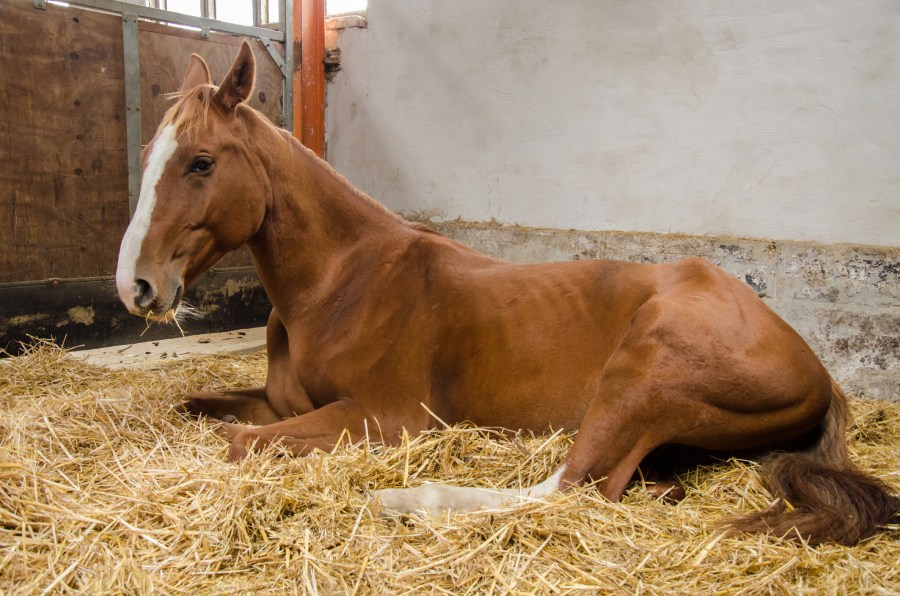A new research project aims to shed more light on colitis in horses. The team of researchers, led by Tim Mair, CVS Equine Veterinary Director and Specialist at Bell Equine Veterinary Clinic, aim to investigate and document the features, treatments and outcomes of the condition, providing greater insight into horse care for UK equines.
There is very little published data on the underlying causes and outcomes of colitis in adult horses in the UK, and most studies originate from North America. It is recognised that the causes of colitis vary in different geographical locations, and some of the diseases causing colitis in North America are not present in the UK.
Colitis – inflammation of the large colon – is a serious and life-threatening disease in horses. Affected animals present with diarrhoea and can rapidly become dehydrated and toxic, resulting in severe shock, multi-organ failure and death. Reports from North America suggest that about 50% of affected horses will die of the disease, despite attempted treatments.
There are many potential causes, including a variety of different bacterial and viral infections, parasites and toxicities. Unfortunately, the clinical signs of colitis are often similar regardless of the cause.
Diagnosis of the cause depends on lab testing, but in many cases, no precise cause will be established. This limits the ability to provide specific treatment. In addition, the cost of testing prevents many owners from undertaking the full range of diagnostic tests.
The new study will review 100 cases of colitis in adult horses and 100 controls referred to seven equine veterinary hospitals in the UK; five CVS equine veterinary hospitals as well as Rossdales Equine Hospital and University of Liverpool’s equine hospital.
A set of diagnostic tests on blood and droppings will be performed in these horses and the clinical features, laboratory results, treatments and outcomes will be recorded.
“Acute colitis accounts for around 5% of admissions to referral hospitals,” said Tim Mair. “And of those who are referred with it, half will not survive but there is very limited evidence available. So it’s vital that we build our evidence-base of this life-threatening condition. We hope that the outcomes of our new study will lead to a greater understanding of the causes and better inform veterinary treatment of colitis in UK adult horses.”
The Colitis in Adult Horses study is supported by a research grant from CVS, and funding for the small redworm ELISA will be given from Austin Davis Biologics. The study started at the beginning of this year and the first horses have been taken on board. The results of the study are expected to be published in 2025.










